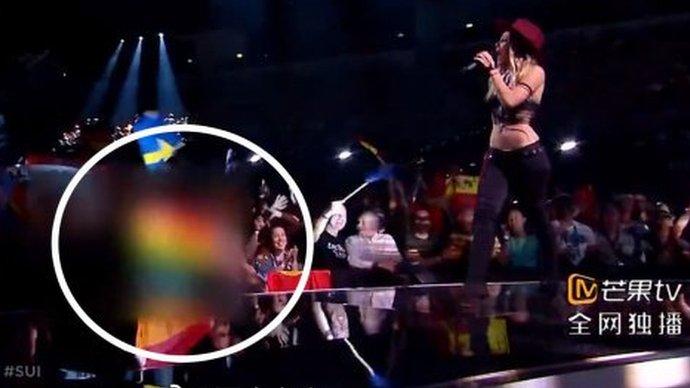Chinese broadcaster censors Rami Malek Oscars speech
- Published
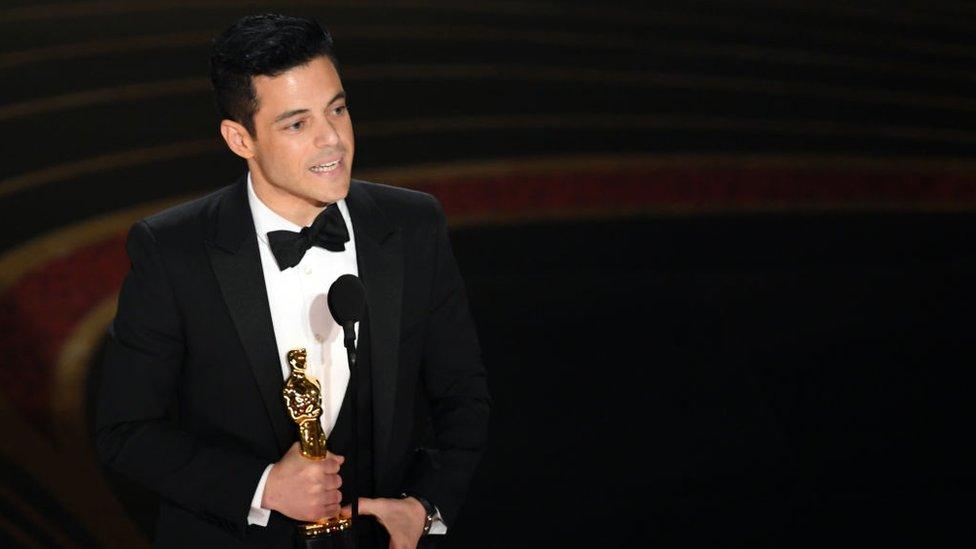
Rami Malek won the award for best actor
Chinese broadcaster Mango TV is facing criticism after its online transmission of the Oscars amended a reference to homosexuality in best actor winner Rami Malek's speech.
Accepting the award for his performance in Bohemian Rhapsody, a biopic of British rock act Queen and lead singer Freddie Mercury, Rami Malek said the film could help those struggling with their identity.
"We made a film about a gay man, an immigrant, who lived his life unapologetically himself," the actor said.
But Mango TV, one of China's most popular channels, avoided using the words "gay man", instead translating them as "special group".
The broadcaster has previously come under fire for censoring LGBT references in the Eurovision Song Contest.
You might also be interested in:
The mistranslation has generated significant reaction online. Tens of thousands of users of Sina Weibo, a Chinese micro-blogging platform, shared screenshots of the broadcaster's coverage.
Prominent music blogger Linglei Guodu was among those to note the mistranslation.
"Mango TV translated 'gay man' as 'special group'", the blogger wrote on Weibo, alongside a screenshot of Mango TV's broadcast, in a post that has more than 14,000 shares.
"There are still so many people in today's society who show prejudice or discriminate by referring to so-called 'special people'," another user wrote, external.
"Even the word 'gay' can't appear on our screens, this is so sad."
"What on earth are they afraid of?" one asked, external.
Others noted previous incidents of censorship involving Mango TV.
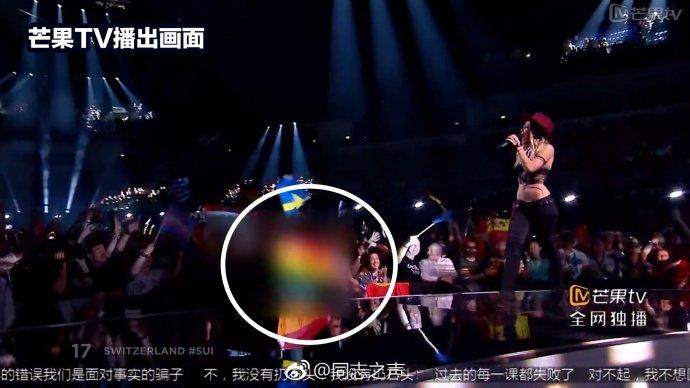
A screenshot from Mango TV shows a blurred rainbow flag in the 2018 Eurovision Song Contest
In 2018, the European Broadcasting Union (EBU) barred the Chinese broadcaster from airing the Eurovision Song Contest after it censored LGBT elements of the competition, including blurring audience members' rainbow flags.
The EBU said the censorship was "not in line with its values of universality and inclusivity and our proud tradition of celebrating diversity through music".
Mango TV has not responded to the criticism online.
Chinese authorities have embarked on a campaign in recent years aimed at purging content that it deems inappropriate.
In April, Weibo announced a move to ban gay content on its platform. But that decision was reversed following a massive outcry.
- Published25 February 2019
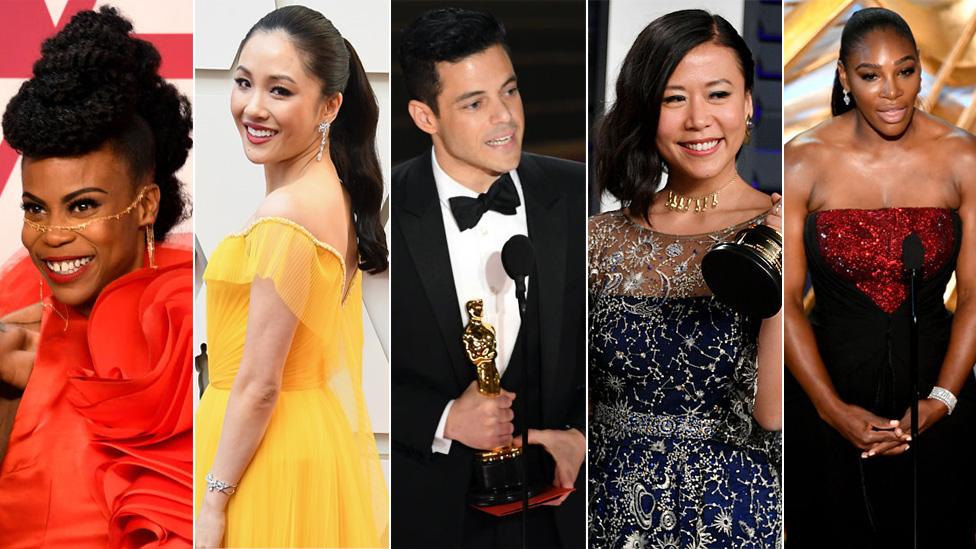
- Published26 February 2019
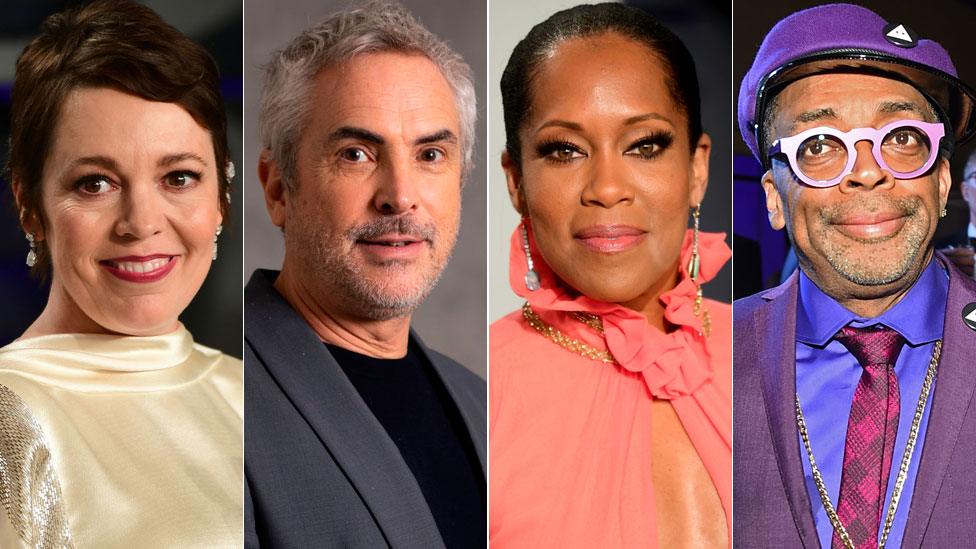
- Published11 May 2018
